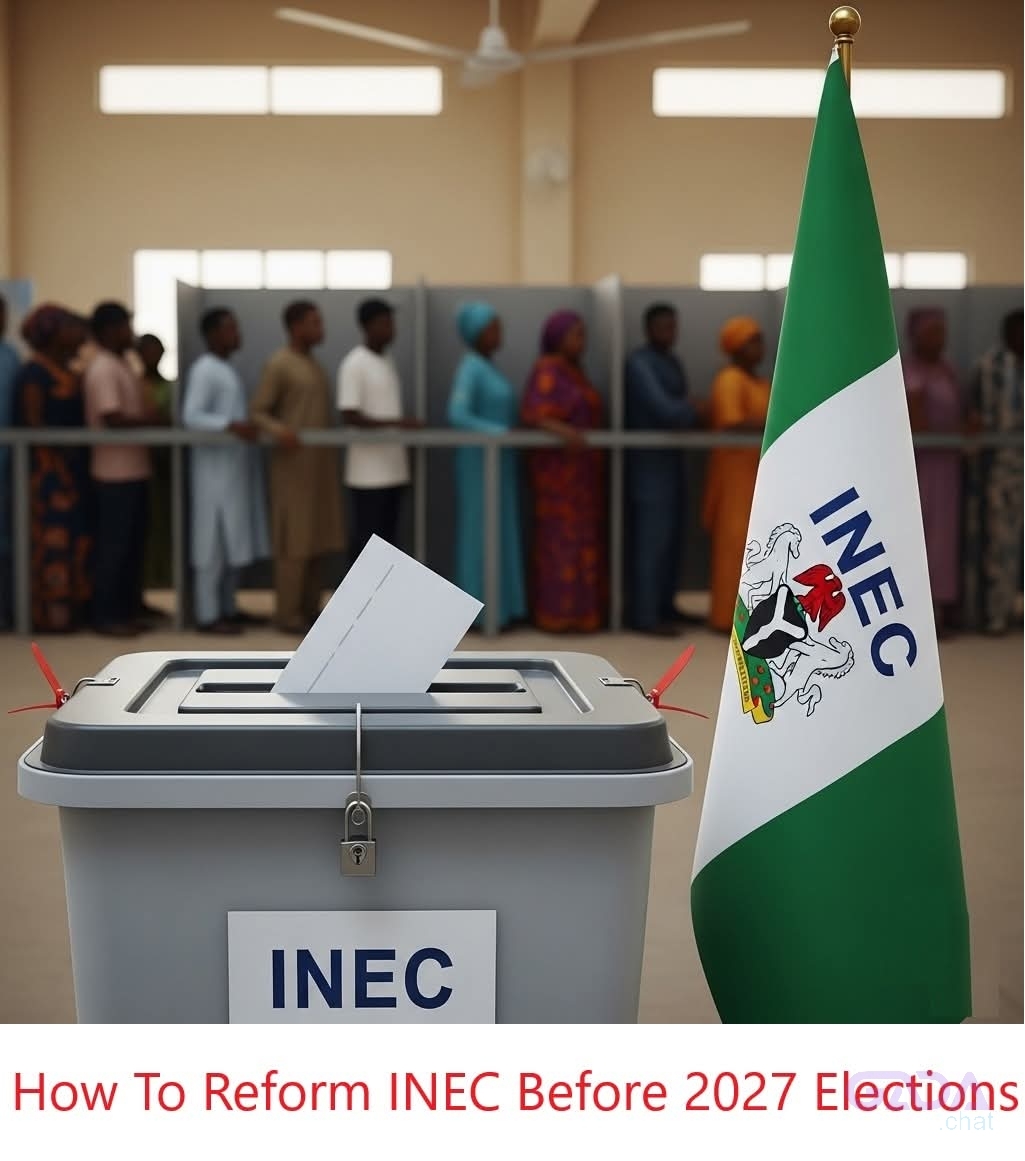I read the recommendations of the Nigerian Bar Association (NBA) to the House of Representatives on the Amendment of the Electoral Act 2022. Below is a summary of this village boy’s own recommendation. / Nigeria's Independent National Electoral Commission (INEC) largely operates without accountability for its actions, which is detrimental to the nation. I propose reforming Nigeria's Electoral Act to allow aggrieved candidates to directly sue INEC for procedural violations during election disputes.
Currently, grievances are directed at the declared winner, not INEC itself. This shields INEC from responsibility for its errors. For example, when a losing candidate sues the winner, even though INEC managed the election, INEC isn't the primary defendant. This misplaces accountability. If INEC were legally compelled to defend its conduct and lost cases due to procedural failures, it would be incentivized to improve operations and uphold electoral integrity.
This shift would create a system where all stakeholders, including winners, are invested in INEC's adherence to rules. If INEC's failures could nullify results, everyone would push for its compliance.
Currently, INEC's outcomes are binding, but it faces minimal risk for missteps. Making INEC legally accountable and allowing its actions to be challenged in court fosters a shared-responsibility model, where process credibility is a mutual interest. This leads to a more transparent, accountable, and democratic Nigerian electoral system.
Furthermore, every INEC rulebook should be treated as a constitutional extension. It's problematic for lawyers to argue that INEC guidelines should be ignored because they aren't explicitly in the Constitution. The Constitution empowers the National Assembly to create INEC and vests INEC with the power to create operational manuals.
When adopted constitutionally, these manuals become valid and must be adhered to. Courts should recognize this, closing loopholes that lead to procedural technicalities in election adjudication. For instance, if INEC mandates BVAS (Bimodal Voter Accreditation System), non-adherence should be grounds for cancellation, as the election was conducted outside the established rules https://www.tekedia.com/how-nigeria-could-reform-the-electoral-act-before-the-2027-elections/
Currently, grievances are directed at the declared winner, not INEC itself. This shields INEC from responsibility for its errors. For example, when a losing candidate sues the winner, even though INEC managed the election, INEC isn't the primary defendant. This misplaces accountability. If INEC were legally compelled to defend its conduct and lost cases due to procedural failures, it would be incentivized to improve operations and uphold electoral integrity.
This shift would create a system where all stakeholders, including winners, are invested in INEC's adherence to rules. If INEC's failures could nullify results, everyone would push for its compliance.
Currently, INEC's outcomes are binding, but it faces minimal risk for missteps. Making INEC legally accountable and allowing its actions to be challenged in court fosters a shared-responsibility model, where process credibility is a mutual interest. This leads to a more transparent, accountable, and democratic Nigerian electoral system.
Furthermore, every INEC rulebook should be treated as a constitutional extension. It's problematic for lawyers to argue that INEC guidelines should be ignored because they aren't explicitly in the Constitution. The Constitution empowers the National Assembly to create INEC and vests INEC with the power to create operational manuals.
When adopted constitutionally, these manuals become valid and must be adhered to. Courts should recognize this, closing loopholes that lead to procedural technicalities in election adjudication. For instance, if INEC mandates BVAS (Bimodal Voter Accreditation System), non-adherence should be grounds for cancellation, as the election was conducted outside the established rules https://www.tekedia.com/how-nigeria-could-reform-the-electoral-act-before-the-2027-elections/
I read the recommendations of the Nigerian Bar Association (NBA) to the House of Representatives on the Amendment of the Electoral Act 2022. Below is a summary of this village boy’s own recommendation. / Nigeria's Independent National Electoral Commission (INEC) largely operates without accountability for its actions, which is detrimental to the nation. I propose reforming Nigeria's Electoral Act to allow aggrieved candidates to directly sue INEC for procedural violations during election disputes.
Currently, grievances are directed at the declared winner, not INEC itself. This shields INEC from responsibility for its errors. For example, when a losing candidate sues the winner, even though INEC managed the election, INEC isn't the primary defendant. This misplaces accountability. If INEC were legally compelled to defend its conduct and lost cases due to procedural failures, it would be incentivized to improve operations and uphold electoral integrity.
This shift would create a system where all stakeholders, including winners, are invested in INEC's adherence to rules. If INEC's failures could nullify results, everyone would push for its compliance.
Currently, INEC's outcomes are binding, but it faces minimal risk for missteps. Making INEC legally accountable and allowing its actions to be challenged in court fosters a shared-responsibility model, where process credibility is a mutual interest. This leads to a more transparent, accountable, and democratic Nigerian electoral system.
Furthermore, every INEC rulebook should be treated as a constitutional extension. It's problematic for lawyers to argue that INEC guidelines should be ignored because they aren't explicitly in the Constitution. The Constitution empowers the National Assembly to create INEC and vests INEC with the power to create operational manuals.
When adopted constitutionally, these manuals become valid and must be adhered to. Courts should recognize this, closing loopholes that lead to procedural technicalities in election adjudication. For instance, if INEC mandates BVAS (Bimodal Voter Accreditation System), non-adherence should be grounds for cancellation, as the election was conducted outside the established rules https://www.tekedia.com/how-nigeria-could-reform-the-electoral-act-before-the-2027-elections/
0 Commenti
0 condivisioni
86 Views
0 Anteprima



